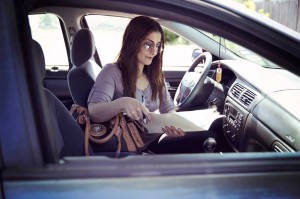Around a table in a nondescript but pleasant room, four people have gathered for their weekly meeting about programs and problems at the MCC. Originally from India, Ethiopia, Jordan, and the United States, all are U.S. citizens. Together they represent the leadership of the MCC, the breadth of the community they serve, and the pressures that have brought successive waves of Muslim immigrants to the community in the last two decades.

The Metroplex first became a significant resettlement area for Muslim refugees from the war in Bosnia beginning in 1995. A decade later, another war, this one in Somalia, produced another group of Muslim refugees. Then in 2009, Kurds seeking refuge from fighting and oppression in Iran began to arrive in North Texas. The refugees joined a growing and increasingly diverse Muslim community, both those born in this country and immigrants from all over South Asia, Africa, and elsewhere.
Between 1983 and 2004, according to the U.S. Office of Refugee Resettlement, about a third of the 34,000 refugees who arrived in Fort Worth were Muslims. The agency tries to place refugees in many parts of the country to even out the burden on local agencies. But refugees are also settled near relatives already established, which means that refugee communities often grow around a nucleus.
The federal government decides whether to grant refugee status for those who apply to resettle here. Refugees receive some government help, but private, nonprofit, and often religious organizations are essential to ease the process. Both public and private agencies help new arrivals to find housing, learn about life and customs here, secure jobs, learn English, and eventually become citizens. The inability to navigate a “foreign” system to meet their most basic needs is the perennial stumbling block.
Ahmed said the goal of the center’s humanitarian work is to ease transitions from native homeland to adopted country. He’s a soft-spoken, articulate man with mahogany-colored skin who looks much younger than he is. Educated in Pakistan and Scotland, he came to this country to teach and practice psychiatry and became a U.S. citizen in 1975.
“Sometimes, adjusting begins with the basics,” he said. “People in our community who have resettled from Muslim countries have difficulty with the English language or in finding someone to translate for them. Even [some of] those who have lived here for many years still cannot speak English.
“Only 25 percent of our patients are American-born,” Ahmed said.
Refugees also sometimes find it difficult to get employers and others to understand their need to attend religious services each Friday, the Muslim holy day.
He said the MCC is struggling to find female physicians to volunteer at the health clinic. “Women in the Muslim culture do not want to expose any part of their bodies to men,” he said. Female doctors now see patients on two Sundays each month. “We are hoping to encourage more doctors — female and male — to join us,” he said.
The MCC now includes the Al-Shifa Free Clinic for medical care, a low- or no-fee dental office, and a small suite of private offices for Ahmed and the volunteer physicians who staff the medical services. Last year more than 6,000 people called for help — about half the client load of a busy family practice office. The medical clinic treated more than 2,000 patients, about 300 people received dental services, and nearly 400 clients received mental health care, counseling, or domestic violence services. The Al-Shifa (the name means “healing place” in Arabic) has 27 volunteer physicians on staff, representing various medical specialties. They come from private practices in Fort Worth, Arlington, and the Mid-Cities.
Alia Salem is office manager of a nonprofit relief organization — Baitulmaal — that coordinates services with MCC. She explained that the MCC and the second group provide another critical service in the community. “MCC helps us with short-term, emergency placement of Muslim orphans and foster children,” she said. There is an urgent need for Muslim families to serve as foster parents for Muslim children — often as a result of domestic violence situations, she said. “Social services within the Muslim community are just starting to take off,” Salem said. “These family issues are just starting to be recognized, so the services are more crucial.”
********












The English Engine
http://www.the-english-engine.com